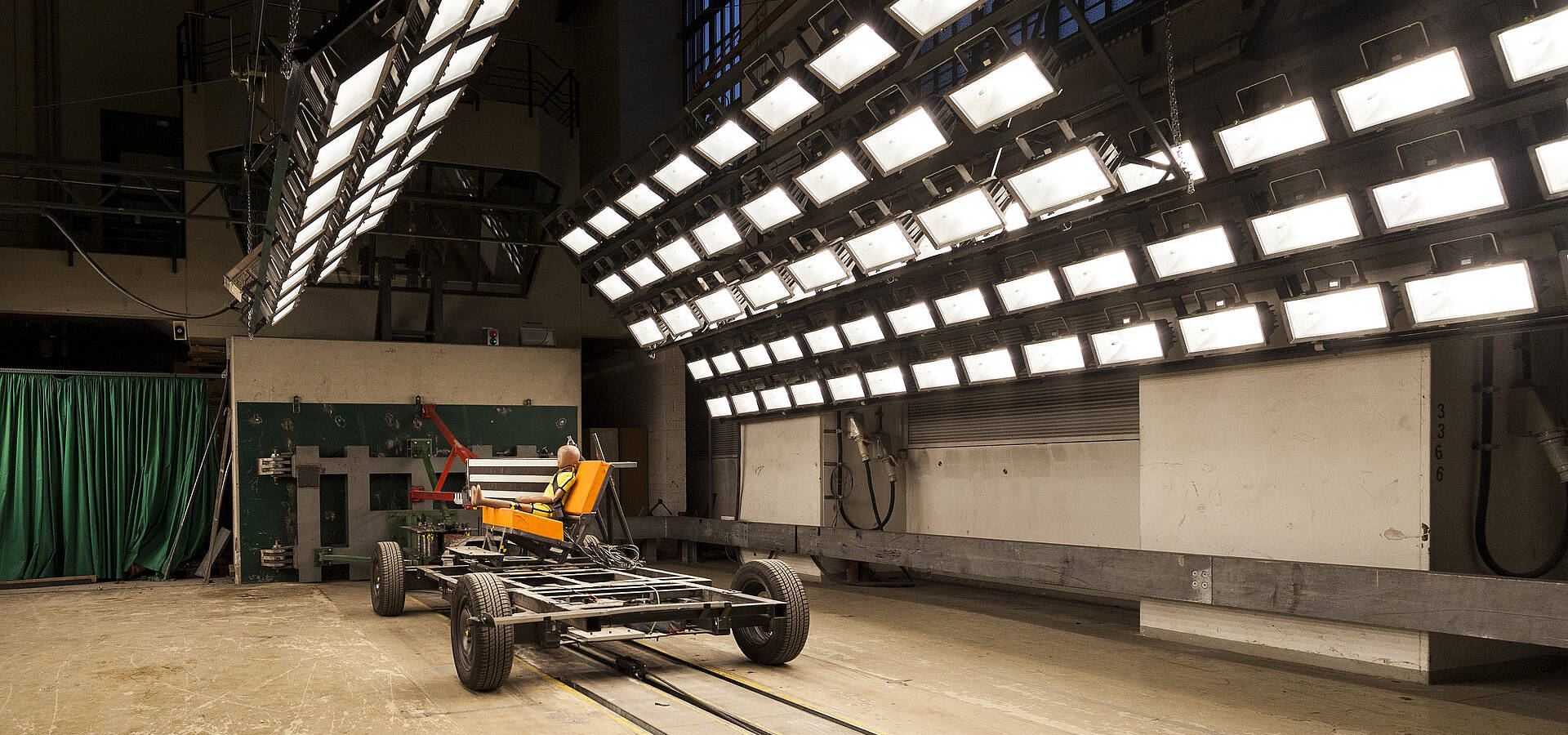 © Felix Noak
© Felix Noak
Transport Systems, B.Sc.
Program overview
In the bachelor’s program in Transport Systems you will be designing means of transport, testing motors, researching accidents, and focusing on simulations of ocean-going vessels. Unique in Germany, the program teaches fundamental principles together with specialized, application-oriented and method-based knowledge. The content of the program provides you with a thorough fundamental understanding of aspects of natural science, mathematics, and engineering, as well as specialized knowledge of the development and operation of transport, the construction and operation of transport routes, and the complex relationship between various transportation systems. You can choose between naval architecture and ocean engineering, transportation planning and operations, aeronautics and astronautics, vehicle engineering, or general transport systems when selecting your area of specialization.
| Degree | Bachelor of Science |
|---|---|
| Standard period of study | 6 semesters |
| Credit points | 180 |
| Program start | Summer and winter semester |
| Admission | Open admission |
| Language of instruction | German |
Admission requirements
As for every other bachelor’s degree program at TU Berlin, applicants must possess a university entrance qualification certificate to apply. Generally, the Abitur serves as the university entrance qualification certificate. If you do not have a formal university entrance qualification, you may still be able to study at TU Berlin if you can provide proof of certain professional qualifications.
The Transport Systems bachelor’s program is taught in German. If you are applying with a foreign school-leaving certificate, you must provide proof of German skills at a specific level. This is a prerequisite for admission. Knowledge of English is useful as some course/modules are offered in English. However, it is not a condition for admission to studies.
As much of the content of the bachelor’s program focuses on aspects of natural sciences, mathematics, and engineering, an aptitude for these areas is desirable. It is particularly helpful if you took advanced courses in these subjects in school, as this will help your transition to the program.
Program structure
There is a proposed course schedule for the degree program. This is a recommendation for how to complete the degree program within the standard period of study of four semesters. It provides an example of which modules to take in which semesters. You can find the proposed course schedule in the study and examination regulations. While this proposed course schedule is ideal on paper, it is not mandatory. It’s simply an example of how to successfully schedule and shape your studies. https://www.vm.tu-berlin.de/fileadmin/f5/FAKV_Dateien/StuBe_VW/Bachelor/ARCHIV/WiSe0910/VW-1.pdf
Study and examination regulations:
Content and modules
A current overview of all modules in the bachelor’s program in Transport Systems is available in TU Berlin’s module transfer system (MTS). The MTS also provides an overview of which modules are mandatory for your degree program and which are elective. Detailed module descriptions provide information about the contents of modules, learning objectives, participation requirements, workload, types of assessment, etc. The module catalogue is based on the study and examination regulations. The most current version of these regulations applies to new students.
To module databaseInternships
An eight-week, non-university, technical internship is a mandatory component of the program. The internship should focus on learning about the complex procedures and processes you will encounter in your subsequent career. Your internship should closely reflect the areas you specialize in your program. Further information is available in the program’s internship regulations.
Stays abroad
Generally, parts of the program can be completed abroad, either as semesters abroad or internships. General information regarding stays abroad can be obtained from the TU Berlin International Office (study abroad) and from the Career Service(internships abroad).
Acquired skills
The Transport Systems program’s combination of fundamental knowledge and a focus on professional relevance provides you with an understanding of the field beyond a purely technical specialization. You learn to view transport as an integral system combining technical, ecological, economic, and planning components within their respective social contexts. You will acquire a thorough knowledge enabling you to recognize technical and planning-related contexts and how to apply and utilize these to address, understand, and evaluate transportation-related issues. The curriculum enables you to work using the latest technological developments, adapting these to the changing structures of transport requirements and transportation systems, thus allowing you to contribute an integrated engineering perspective to find solutions to current problems of transportation. Additionally you will acquire interdisciplinary skills, such as the ability to act independently and with responsibility as well as to bring creativity to your work within interdisciplinary groups.
After your studies
You have a number of options as a graduate of the bachelor’s program: You can study in the advanced master’s programs in Vehicle Engineering, Aeronautics and Astronautics, Transportation Planning and Operation, Naval Architecture and Ocean Engineering (all available at TU Berlin) or you can choose direct career entry. A wide range of careers is available to transportation engineers.
• In aeronautics and astronautics: the assessment and integration of new technologies, or the development and management of complex networked aeronautical systems
• In naval architecture and ocean engineering: designing ships and floating ocean systems,
• In vehicle engineering: the development, project planning and construction of motor vehicles and rail vehicles, or the preparation of deployment analyses, competition analyses, and economic feasibility analyses
• In planning and operations: the analysis of transport relationships and transport-generating structural dimensions for transportation planning, the assessment of transportation facilities, or environmental impact assessments of transportation measures
Building on your profile in the area of general transportation, your choice of specialization during your studies will help determine in which of these four areas you acquire the knowledge and skills for your subsequent professional life.
Further information & downloads
Guidance and choosing the right degree program: Academic Advising Service
Questions about the degree program: Course Guidance
General questions: Student Info Services
Application and enrollment: Office of Student Affairs - Undergraduate Admissions
Recognition of previously acquired credits: Examination Board
Recognition of previous internships or vocational trainings: Internship Officers
